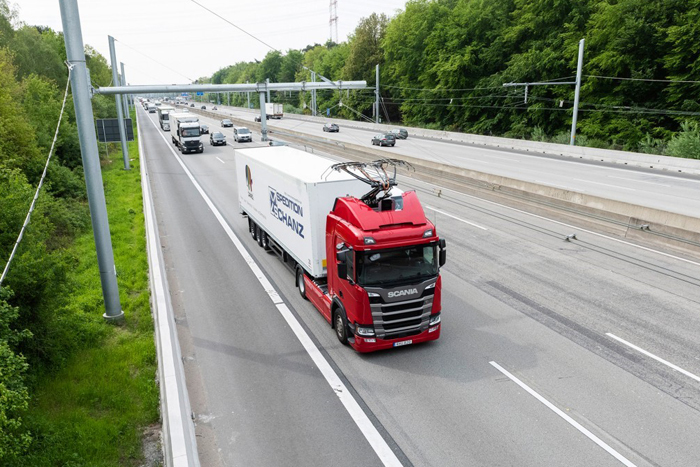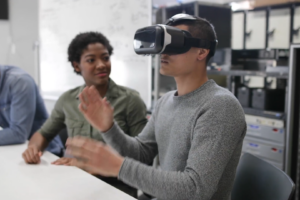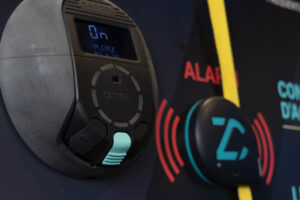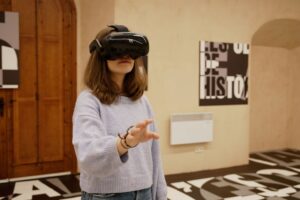
Lightweight sprayed materials for reinforcing and rehabilitating urban heritage buildings and structures
July 15, 2021
A study examines recharging electrical vehicles on motorways using overhead lines
July 26, 2021The Soft Computing(SOCO) research group of the Intelligent Data Science and Artificial Intelligence Research Center (IDEAI), leads the project LONG-REMI for the design of a technology application that can be used in reminiscence therapy.
The aim of the LONG-REMI project is to develop a technology application based on artificial intelligence that can be used to carry out reminiscence therapy periodically, in an individualised way that is adapted to the patients’ needs, taking as a basis all this shared heritage. This is a very simple, intuitive app designed to be used on a tablet, through which photographs, videos or questions can be shown relating to sayings, tongue-twisters and songs that function as stimuli to promote memories.
The aim of the application, which will be available at the end of the year, is to prevent cognitive impairment and avoid the effects of severe memory loss, and to improve mood and health in general. The app could be used in patients with or without cognitive impairment and will enable reminiscence therapy to be carried out in a more adaptable, convenient, economic way than with conventional treatments in which therapies are more costly due to the need for monitoring by specialists, and treatments are only carried out for dementia patients in occasional sessions.

One of the tasks carried out by UPC researchers is the development of an algorithm to guide the reminiscence therapy in an individualised way that is adapted to the specific needs of each user according to the cognitive impairment. To achieve this, artificial intelligence techniques of facial recognition are used that, through computer vision and automatic learning, can dynamically assess the emotions of the person while they carry out their activities, above all, by analysing the position of the mouth and the eyes.
The app will be tested next month, in September, by 60 elderly people in Spain and Portugal. Specifically, in Barcelona, a group of people will participate in tests carried out at the Casal de la Gent Gran in Baix Guinardó, the Associació Nou Horitzó and the Hospital de Dia Parc Sanitari Pere Virgili. Participants will be ten people with no cognitive impairment, ten people with mild cognitive impairment and ten people with mild dementia. The tests will consist in three individual 45-minute sessions that will enable an assessment of each person’s response to the stimuli presented in the application.
El projecte compta també amb la participació de la Fundació Salut i Envelliment de la Universitat Autònoma de Barcelona (UAB) i de l’Instituto Politécnico de Coimbra (IPC) de a Portugal.
The LONG-REMI project is funded as part of the Programme for a Long-Lived Society by the CSIC foundation and European Union ERDF funds.
Topic
You want to know more?
Related Projects
- The Image and Video Processing Group (GPI), part of the IDEAI-UPC research group, and the Digital Culture and Creative Technologies Research Group (DiCode) from the Image Processing and Multimedia Technology Center (CITM) at the Universitat Politècnica de Catalunya – BarcelonaTech (UPC), have co-organised the AI and Music Festival (S+T+ARTS) together with Sónar+D and Betevé, to explore the creative use of artificial intelligence in music.
- The Visualisation, Virtual Reality and Graphic Interaction Research Group (ViRVIG) at the Universitat Politècnica de Catalunya - BarcelonaTech (UPC) has participated in the XR4ED project, an initiative that connects the educational technology (EdTech) and Extended Reality (XR) sectors, with the aim of transforming learning and training across Europe.
- The inLab FIB at the UPC has collaborated with Lizcore® for the development of a proof of concept based on artificial intelligence to improve safety in climbing with autobelay devices. The system allows the automatic and accurate detection of risk situations before starting a route.
- Researchers from the Centre for Image and Multimedia Technology of the UPC (CITM) and from the DiCode research group (Digital Culture and Creative Technologies Research Group) of the Universitat Politècnica de Catalunya – BarcelonaTech (UPC) have worked on the project The Eyes of History, an initiative of the Catalan Agency for Cultural Heritage that offers an immersive view of Catalan cultural heritage. It is especially aimed at the first and second cycles of secondary education and was created to bring heritage into the classroom. Its goal is to bring the history and monuments of Catalonia closer in a vivid and innovative way, using tools such as virtual reality and new museographic narratives.




